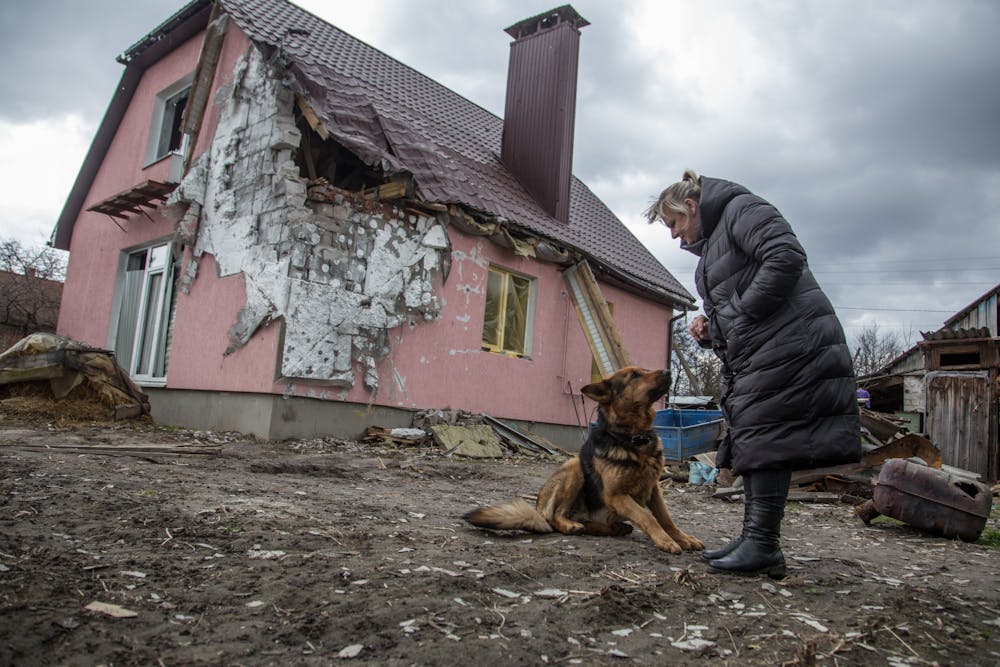By Gauri Patel
Staff Writer
Thousands of Russians are fleeing their country in an attempt to avoid being drafted into the ongoing invasion of Ukraine. This comes after Russian President Vladamir Putin’s orders to mobilize in his failing war caused many people to protest in opposition, with some protests turning violent.
According to Forbes, neighboring countries like Georgia, Turkey and Kazakhstan have been seeing large numbers of Russians of fighting age appearing at their borders. Some Russians have even gone as far as Germany in order to escape forced conscription.
Nancy Faeser, the German Minister of the Interior and Community, said to the newspaper Frankfurter Allgemeine Zeitung that “deserters threatened with serious repression can – as a rule – obtain international protection in Germany,” indicating that Russian citizens can apply for asylum in Germany. However, this policy is not shared by other members of the European Union (EU). In fact, several countries that were once open to fleeing Russian citizens are now making it more difficult for Russians to enter their respective countries, with one way being through visa bans.
According to Petr Tůma from the Atlantic Council, a nonpartisan organization in the field of international affairs, “Estonia, Latvia, Lithuania and Poland (all of which share a land border with Russia) jointly agreed to stop issuing Schengen visas to Russians for tourism, business, sports and cultural purposes.”
Finland remains as the last country bordering Russia that has continued allowing Russians to enter, but Prime Minister Sanna Marin expressed the country’s interest in reducing Russian travelers, telling Reuters, “The government's will is very clear, we believe Russian tourism (to Finland) must be stopped, as well as transit through Finland.”
Furthermore, according to the New York Times, Putin has announced Russia’s annexation of four Ukrainian provinces, or some 40,000 square miles of eastern and southern Ukraine, including Luhansk, Donetsk, Zaporizhzhia and Kherson. These regions will join the Crimean peninsula, which Russia annexed after its initial invasion of Ukraine in 2014.
This announcement comes after Russia hastily organized referendums in Ukraine and Russia, often described as sham referendums by Western officials. Voters were in the presence of armed Russian soldiers who monitored them as they cast their votes. Numerous cases of coercion in voting have been reported by Ukrainian officials, suggesting that the entire process was staged.
In early Sept. 2022, the Russian army was also driven out of Kharkiv, which could account for how hastily this plan was put together. Any land on which there are battles will most likely be declared as Russian territory. Putin claims that Ukrainians and Russians are one people, and therefore Russia is defending Ukraine, not attacking it. Considering the shortage of troops faced by Russia, the annexation of these Ukrainian provinces may be used as justification for drafting Ukrainian men into their army.
In a speech at the Kremlin on Sept. 29th, Putin said “I’m sure the federal assembly will support the laws of formation of the four new regions in Russia, four new subjects of the Russian federation.”
Putin even went as far as to say the people who currently live in these provinces will not have a say in the issue, while still expecting them to accept him as their new leader.
“The choice of the people in Donetsk, Luhansk, Zaporizhzhya and Kherson, we will not discuss. It has been made. Russia will not betray it,” he says.
This move is widely being criticized by other countries, and many countries will not recognize the territory as belonging to Russia. The EU rejects the Russian annexation and declares it illegal, saying in a statement on behalf of the member states, “We do not and will never recognise the illegal ‘referenda’ that Russia has engineered as a pretext for this further violation of Ukraine’s independence, sovereignty and territorial integrity, nor their falsified and illegal results.”
In addition, the United Nations has plans to pass a resolution sponsored by the United States that will dismiss Russian territorial claims and call for the removal of all Russian troops off of Ukrainian soil.
In order to show the legitimacy of this annexation, Russia will adhere to legal formalities that were followed the same way during the 2014 annexation of Crimea, according to the New York Times. A draft law proposing the expansion of the borders will be submitted to the Russian Parliament by President Putin, but almost all Parliament members are undoubtedly loyal to their president, meaning that the proposal will almost surely be voted into law. Unfortunately, the consequences of this decision could be that this seven-month long war will only drag on further.
Ukraine has the support of many countries in this war, including the United States. Secretary of State Antony Blinken said, “The United States and our allies and partners will continue to assist Ukraine in its fight to defend its territory against Russian aggression.”







